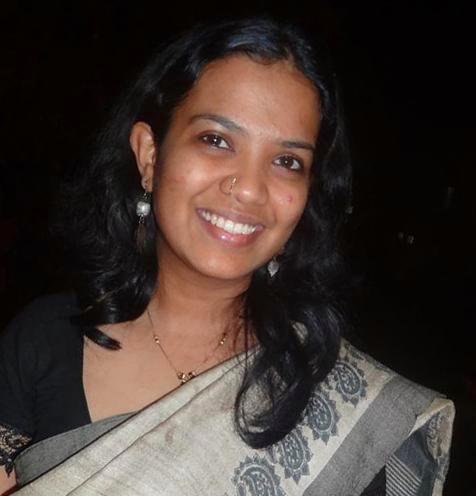Clinical psychologist and PhD student, Indupriya Babu, has been recognised for her research into risk-taking, and why men are more likely to experience road traffic accidents.
Based in Delhi, Ms Babu is part of The University of Queensland’s joint Academy of Research with the Indian Institute of Technology Delhi (IITD), known as UQIDAR.

Her paper, which won the 46th National Annual Conference of Indian Association of Clinical Psychologists, surveyed 1320 young adults and found men took greater risks such as drunk driving and experienced more crashes than women. Funded by Mercedes-Benz, the research will be written for publication in the coming months.
The winning research paper is separate to Ms Babu’s PhD on improving ways to predict health outcomes of people from a low socio-economic background after surgical epilepsy. Nonetheless, both are supervised by IITD Associate Professor Varsha Singh.
“Dr Singh helped me to take up one part of the survey and analyse it so that I got hands on experience with a large data set analysis, which will be helpful for my own research analysis as a UQIDAR scholar,” Ms Babu said.
Right now, IITD is in lock-down due to COVID-19 and she has been sent back to her hometown in Kerala until the situation gets under control. She hopes to return to the campus as soon as it reopens and looks forward to spending a year at UQ as a part of her degree. As a UQIDAR scholar, she will graduate with a PhD from both UQ and IITD.
“I have completed all my coursework subjects, so I can return to research without the practical component of conducting face-to-face work with patients suffering from epilepsy. This will have to wait until the pandemic diminishes,” she said.
Inspired by leading lights in neuroscience like the late Dr Oliver Sacks, Ms Babu also wants to become a clinical researcher.
“Dr Sacks helped me to see the clear bridge between psychiatry and neurology disorders and the brain-behaviour connection, which is why I shifted the focus of my studies from neuropsychology to neuroscience,” she said.
Pro-Vice-Chancellor Global Engagement and Entrepreneurship, Dr Jessica Gallagher, said building and maintaining diverse and sustainable partnerships across the Indian Ocean is critical during the international crisis of COVID-19.
“High-achieving scholars looking at how our brains influence our behaviour ties in perfectly with the goals of UQIDAR – cross disciplinary research into the grand challenges of our times in science and health,” Dr Gallagher said.
“Both IITD and UQ will benefit from pooling our shared knowledge around neuroscience to improve how we all live, and we look forward to having Ms Babu on-campus in the near future.”
UQIDAR is a flagship initiative that will transform the Australia-India research landscape. With a focus on a joint PhD program with strong industry linkages, the Academy attracts elite students, academics, and researchers. The Academy’s first PhD students commenced work on cross-disciplinary grand challenges in engineering, science and health in January 2019. UQIDAR expects to graduate more than 300 students within 10 years.
Over the course of her joint PhD, Indupriya Babu will have access to three supervisors: UQ Centre for Advanced Imaging Director, Professor David Reutens; IITD Associate Professor of Psychology Varsha Singh; and, external supervisor Dr Manjari Tripathi, Professor Neurology, Centre of Excellence, All Indian Institute of Medical Sciences (AIIMS), New Delhi.
Media: UQIDAR Coordinator Georgia Mitchell, georgia.mitchell@uq.edu.au, +61 7 3443 1699.



